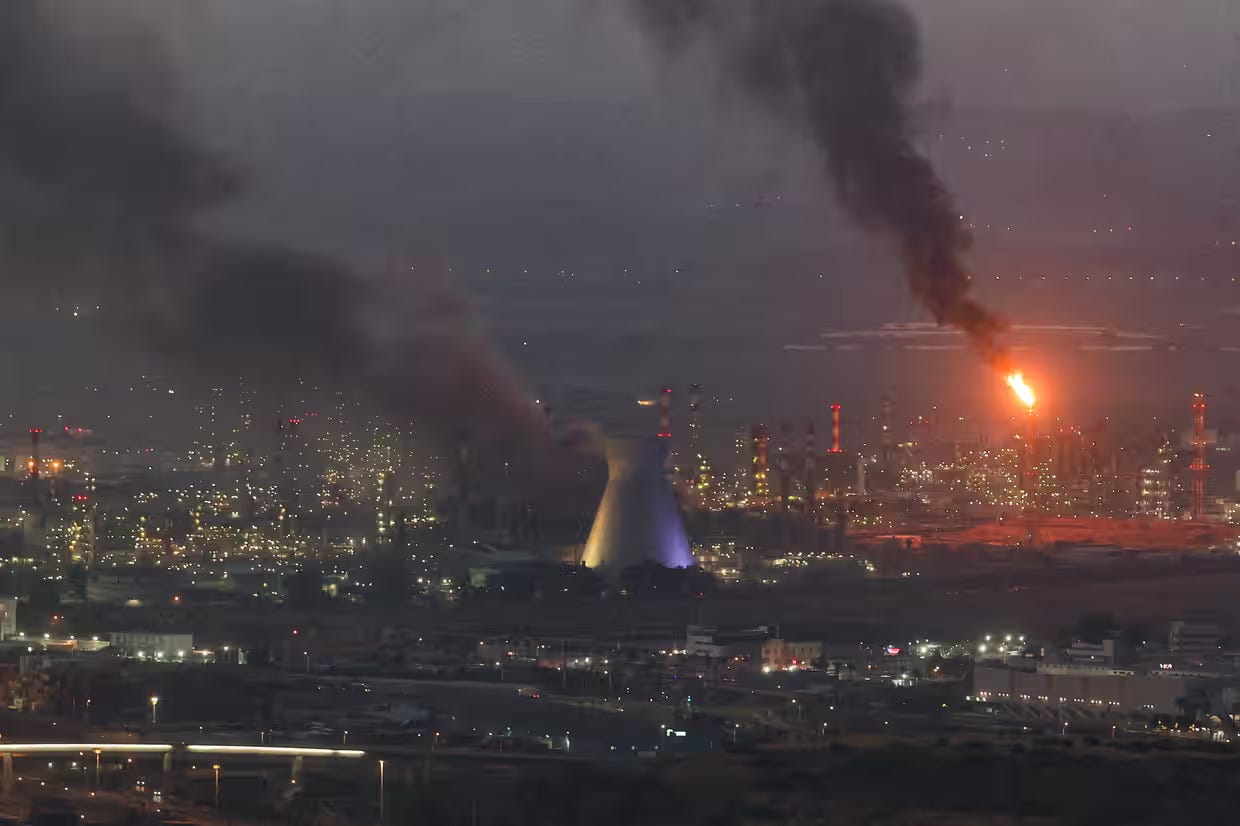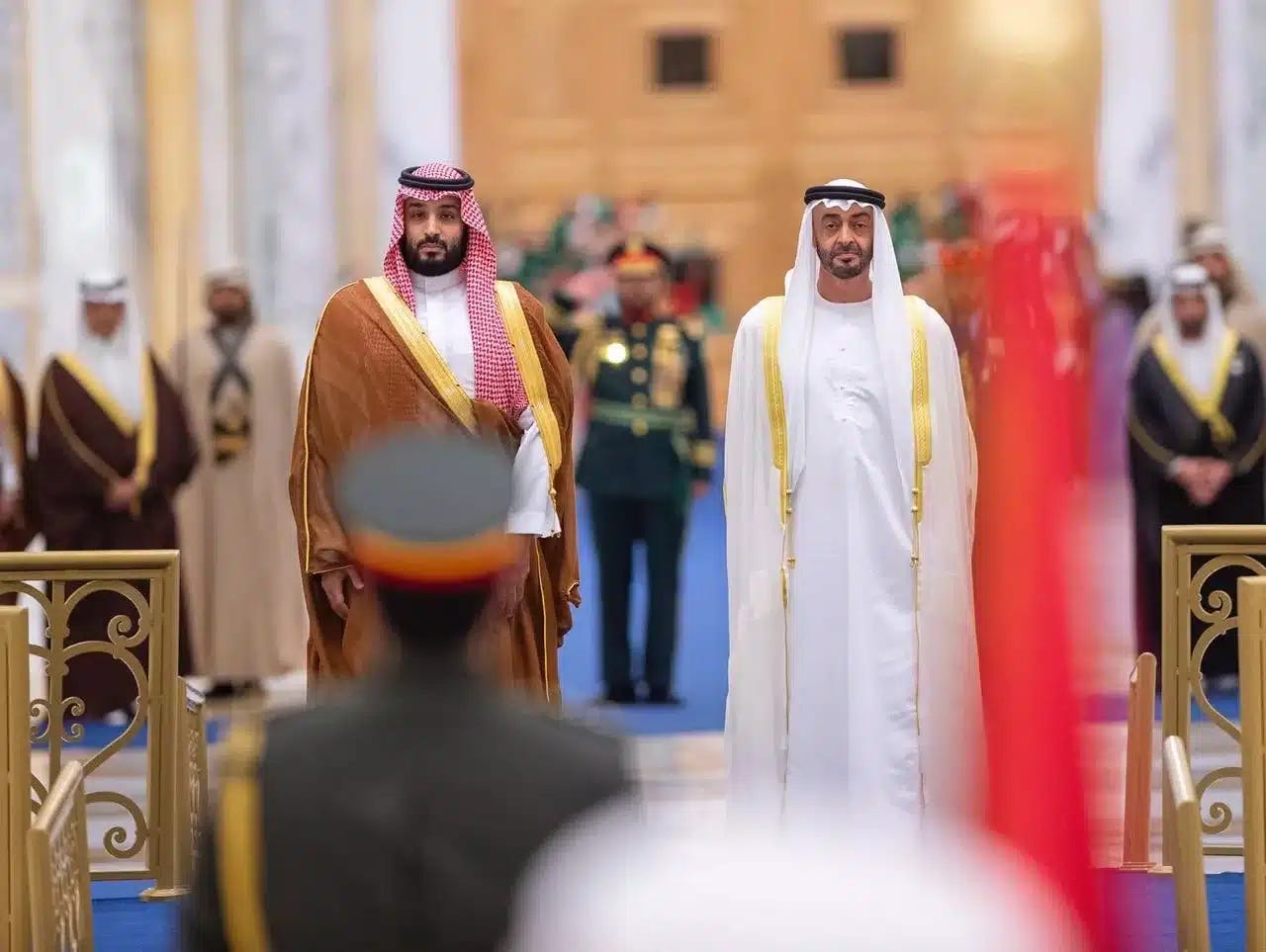Amid the escalating military confrontation between Iran and Israel, the spotlight has turned to the Gulf region, now at the heart of a complex geopolitical equation. Gulf states—most notably Saudi Arabia, the UAE, and Qatar—have officially adopted a narrative calling for de-escalation and restraint.
Yet beneath the surface, these nations are fully aware that the outcome of this conflict could redraw regional power dynamics and alter their own geopolitical standing.
So, what is the Gulf’s real position? Where do its interests lie in this unfolding crisis? And why do some capitals seem to “watch silently” while engaging actively behind the scenes?
Between Public Stance and Ground Reality
Official statements from Gulf foreign ministries emphasize a policy of non-alignment, urging dialogue and restraint. All have publicly condemned what they termed the “Israeli aggression against Iran” in this latest round of conflict.
However, their real actions tell a different story. Gulf states do not maintain equal political distance from Iran and Israel. Several maintain direct ties with Israel, while others appear to be waiting for the right moment to engage.
Following the reciprocal strikes between Iran and Israel in April 2024, American media reported that some Gulf countries provided intelligence cooperation to Israel and the United States, particularly during Iran’s response. Israeli aircraft were also granted access to Gulf airspace.
According to researchers, some Arab states discreetly aided in defensive operations against Iranian attacks, viewing collaboration with the US and Israel as strategically beneficial—as long as it remained off the record.

Yasmin Farouk, a non-resident fellow at the Carnegie Endowment for International Peace, noted: “Gulf states know they don’t yet receive the same level of US backing as Israel. They see this covert cooperation as a long-term investment that won’t compromise their current political standing, since nothing is public.”
Saudi Arabia—while not yet formally normalized with Israel—is believed to rely on American mediation for intelligence sharing, particularly since the Houthi attacks on Aramco facilities. These strikes spurred quiet cooperation between Riyadh and Tel Aviv, though no direct involvement has surfaced during the current war.
Strategic Gulf Interests Amid Conflict
Gulf states recognize that this confrontation could reshape the Middle East. A region long defined by rivalries among regional powers might gravitate toward normalization should Israel emerge as the dominant force. Their interests in this war—and in its aftermath—fall into three main categories:
Iran is widely seen in the Gulf as a long-term strategic threat, especially given its interventions in Yemen, Syria, Iraq, and Lebanon. Yet a direct conflict remains a risky proposition, given Iran’s asymmetric warfare capabilities via regional proxies.
Thus, Israeli escalation is viewed as a useful tool to weaken Iran without drawing the Gulf into open war—provided the conflict remains under control. Since the 1979 Islamic Revolution, Iran has exploited sectarian diversity to penetrate Gulf societies. Although its revolutionary export agenda has waned publicly, its soft power remains effective—as seen in Bahrain, Yemen, and Iraq.
Saudi Arabia and the UAE view Iranian-aligned militias—Hezbollah in Lebanon and the Popular Mobilization Forces in Iraq—as strategic extensions of Tehran’s influence. If these groups are politically or militarily weakened as a result of Israeli escalation, the Gulf stands to benefit.
In contrast, their continued expansion hampers Gulf efforts to assert economic and political influence in these regions. Hence, the conflict presents an opportunity to roll back proxy influence while empowering rival factions.
This strategy was already in motion before the current strikes: the Syrian transitional government and Lebanon’s new administration enjoyed substantial economic and political support, including international recognition, with figures like Syrian President Ahmad al-Shara and U.S. President Donald Trump featured in summits in Riyadh.

Should Iran’s oil exports shrink due to escalation or renewed Western sanctions, Gulf states—especially Saudi Arabia—would regain leverage as stable energy suppliers. This would strengthen their negotiating position with the U.S. and Europe, not just in energy but also in security and commercial agreements.
Higher oil prices would also generate immediate profits amid a sluggish global economy still reeling from the war in Ukraine and the aftershocks of COVID-19.
Gulf Fears Over the War’s Escalation
But like any war, this one carries unpredictable risks. The Gulf’s primary concerns include:
Domestic Security Blowback
Gulf states fear that critical infrastructure could be targeted—either by Iran or its proxies like the Houthis. The 2019 Aramco attack on the Abqaiq and Khurais facilities—halving Saudi oil output in hours—remains a vivid memory.
Further complicating matters, American bases in Qatar, the UAE, and Bahrain could become direct targets if the war expands and Washington forms a coalition to topple the Iranian regime.
Investment Flight and Economic Instability
Gulf nations have marketed themselves as stable, investor-friendly havens in a volatile region. That image—built over decades—could crumble if war engulfs these countries or their Western military installations.
Iran’s proximity, control over the Strait of Hormuz, and regional proxy network gives it the capacity to inflict substantial damage. While rising prices may boost revenues, they could also trigger global economic slowdown—lowering demand and pushing major economies to invest more heavily in alternative energy. This trend threatens Gulf development strategies like Saudi Vision 2030.
Military escalation complicates Gulf governments’ efforts to normalize ties with Israel. Saudi Arabia, in sensitive talks mediated by the U.S., fears normalization could become a political liability if associated with war and destruction.
A prevailing narrative in Gulf capitals posits Israel as a reliable bulwark against Iran—an existential threat to ruling regimes. This war is a critical test of that thesis. While Israel has broken the taboo of avoiding direct conflict with Tehran, how the war ends will determine whether Gulf states embrace overt normalization.
The Gulf as a Potential Mediator
Gulf states could play a cooling role if either Iran or Israel seeks to de-escalate. Several capitals possess the political weight or relationships to mediate:
Qatar: Its open ties with Tehran and refusal to join the Abraham Accords enable it to act as a go-between—as it has in past prisoner swaps between the U.S. and Iran.
UAE: Despite its security partnership with Israel, it maintains channels with Tehran and tries to balance economic ties with the West and regional calm, particularly in maritime affairs.
Saudi Arabia: Restored ties with Iran through Chinese mediation in 2023 position Riyadh as a regional stabilizer. It seeks to rebuild Arab influence without being drawn into war.
The Gulf is seeking a calibrated weakening of Iran—one that depletes its power without unleashing chaos. These states do not support Iran, but they also fear total Israeli dominance, which could marginalize their regional role.
They are not openly hostile to Israel either, but prefer to manage the relationship discreetly until conditions ripen. In this light, neutrality is not indecision—it is a sophisticated strategy for balance.
The Gulf prefers to manage the crisis, not be consumed by it—in a world where interests intersect more than ever.

